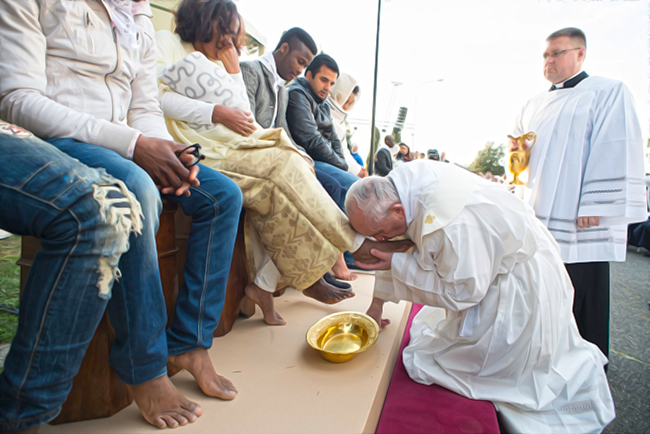
In The Farewell Discourses, Adrienne von Speyr speaks of the hour of the Lord’s return to the Father is near. The Lord is not thinking of that but of accomplishing the highest and most definitive act possible in the time remaining to him on earth, of realizing the uttermost love. He knows that he comes from love and is going to love and that he himself is love. This love he wants to give to his own, just as he possesses it: wholly and prodigally. In everything he does, he desires only to love. As Jesus moves from disciple to disciple as he washes their feet in today’s gospel reading, one can wonder what his thoughts were. We can imagine him lovingly gazing at each disciple, seeing a person for whom he would win salvation. C.S. Lewis is famous for saying that humility results not so much from thinking less of ourselves but from thinking of ourselves less. Surely, Jesus was thinking of each person whom he was serving. Our first instinct in seeing this action played out again in our churches two thousand years later may be to see the foot washing as simply a good deed to be repeated, which of course, it is. But in his book Jesus of Nazareth, Pope Emeritus Benedict XVI broadens this initial instinct and views the washing as a deep foreshadowing of Christ’s ultimate kenosis: the emptying of his divinity on the cross for our salvation. Archbishop Joseph Kurtz, reflecting on this reading, suggests that Jesus could be imagining the shadow of that cross on which he died as he prayed in the Garden, “Father, if it is your will, take this cup from me; yet not my will but yours be done.” Thus my humble part this Holy Week is to stretch my imagination, to accompany Jesus to his cross in my life so that the Holy Eucharist, given as a gift this blessed evening, might flow through me.
